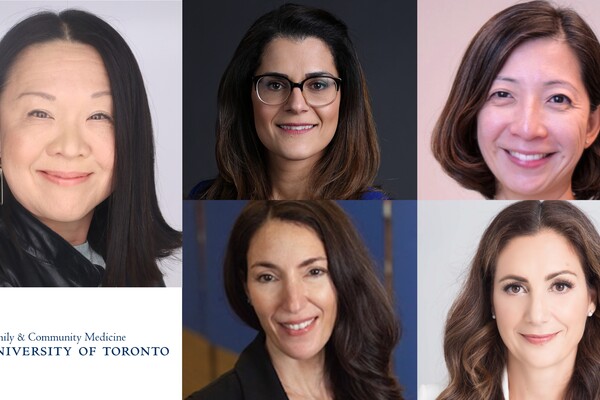MD Student's Passion for Family Medicine Wins Her a Prestigious Scholarship
What inspired you to pursue family medicine as a career?
During my clerkship experience, I began to appreciate that family medicine is a truly unique discipline, providing the valuable opportunity to form long-term relationships with patients and to foster deep connections with them in a way that no other specialty really gives you the opportunity to do.
I remember one particular patient with metastatic ovarian cancer who I assessed in hospice care at the end-of-life. With my preceptor, I remember I sat down and chatted with her, discussing her palliative treatments and goals of care, one of which was to live to see her granddaughter’s six-month celebration. After reviewing with her, we held a family discussion with her husband and her daughter, who were also patients of my preceptor’s family practice. I remember diagnosing the patient’s husband with gout on the spot and helping to write the script for his medications. Later that same week, I would see the patient’s daughter and 3-month-old granddaughter in clinic for a well-baby check. It was a vivid example to me of the depth and high level of trust involved in a family physician’s relationship with their patients, as well as a glimpse into the family physician’s broad spectrum of care.
Family physicians can be there from birth to the end-of-life for their patients - for the many small and big things they go through. There is something to be said about being present for someone to that extent, sharing in some of their most intimate and vulnerable moments. This is why I entered medicine.
Why did you become interested in family medicine?
Early on in medical school, I had the privilege of meeting exceptional family medicine mentors who were leading very diverse career paths. I think this is what initially sparked my interest in family medicine. At the time, I was completing a concurrent Master’s degree in Systems, Leadership, and Innovation at the University of Toronto. This program provided me opportunities to work to address major gaps in primary care, evaluating measures of patient quality of life and developing new approaches towards assessing the cost-value of chronic disease programs in the context of a changing fiscal landscape.
During these experiences, I was fortunate to encounter family physicians who were passionate leaders in health advocacy and policy development. They showed me that family physicians hold a privileged position in being well-poised to speak on behalf of their patients to decision-makers who are often far removed from the impact of their decisions at the patient level. I think the family physician’s ability to advocate for patients and communities is unparalleled in this respect. The broad scope of family medicine offers constant intellectual stimulation and diagnostic challenge, and family practice provides opportunities to leverage one’s training and experience towards addressing existing gaps in healthcare services and to begin bringing about systems-level change. I can’t think of a more exciting and rewarding career.
What does winning the scholarship mean to you?
I am still overwhelmed to have been selected alongside such exceptional scholarship recipients who have inspired me with their work during medical school. I am particularly grateful to the family physician mentors and the colleagues I have worked with who have strongly enabled and supported my interests over the years. Personally, the award is recognition of the work that I’ve done from a primary care perspective and further validates my desire to and confidence in pursuing a career in family medicine. I felt very privileged to attend the 2019 Family Medicine Forum as a scholarship recipient, to meet other family physicians doing incredible work in primary care, and to be welcomed by the University of Toronto’s Department of Family and Community Medicine.
What’s in store for you next?
In the new year, I’m excited to be starting a new project I am involved with under the mentorship of Dr. Naheed Dosani, a palliative care physician at the Inner City Health Associates (ICHA) who I was fortunate to connect with. The project will be focused on optimizing some of the services delivered through Palliative Education And Care for the Homeless (PEACH), a mobile palliative care program that delivers hospice care to the homeless and vulnerably housed in Toronto. Other than that, I will also be hard at work preparing my applications to residency programs!
News



